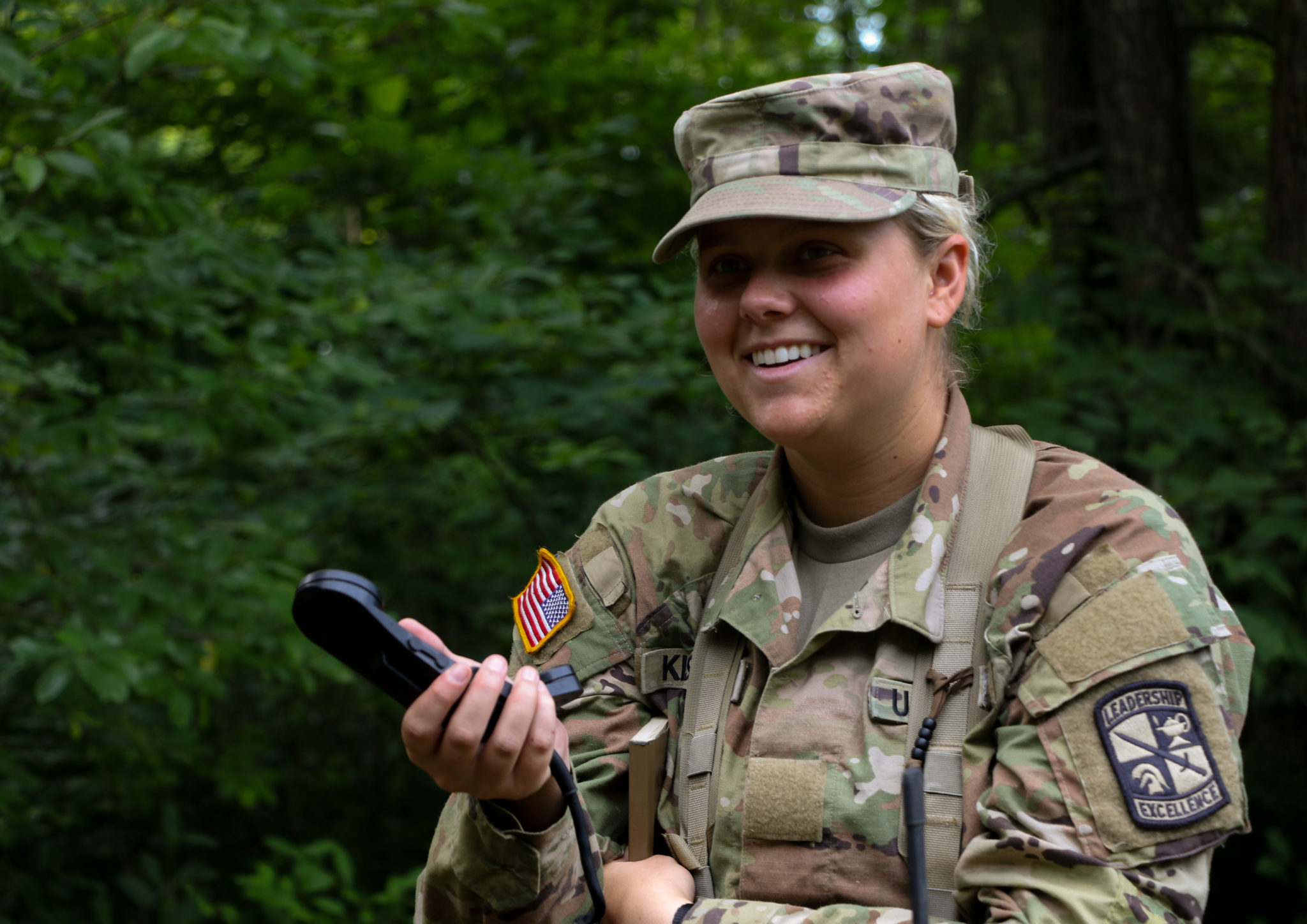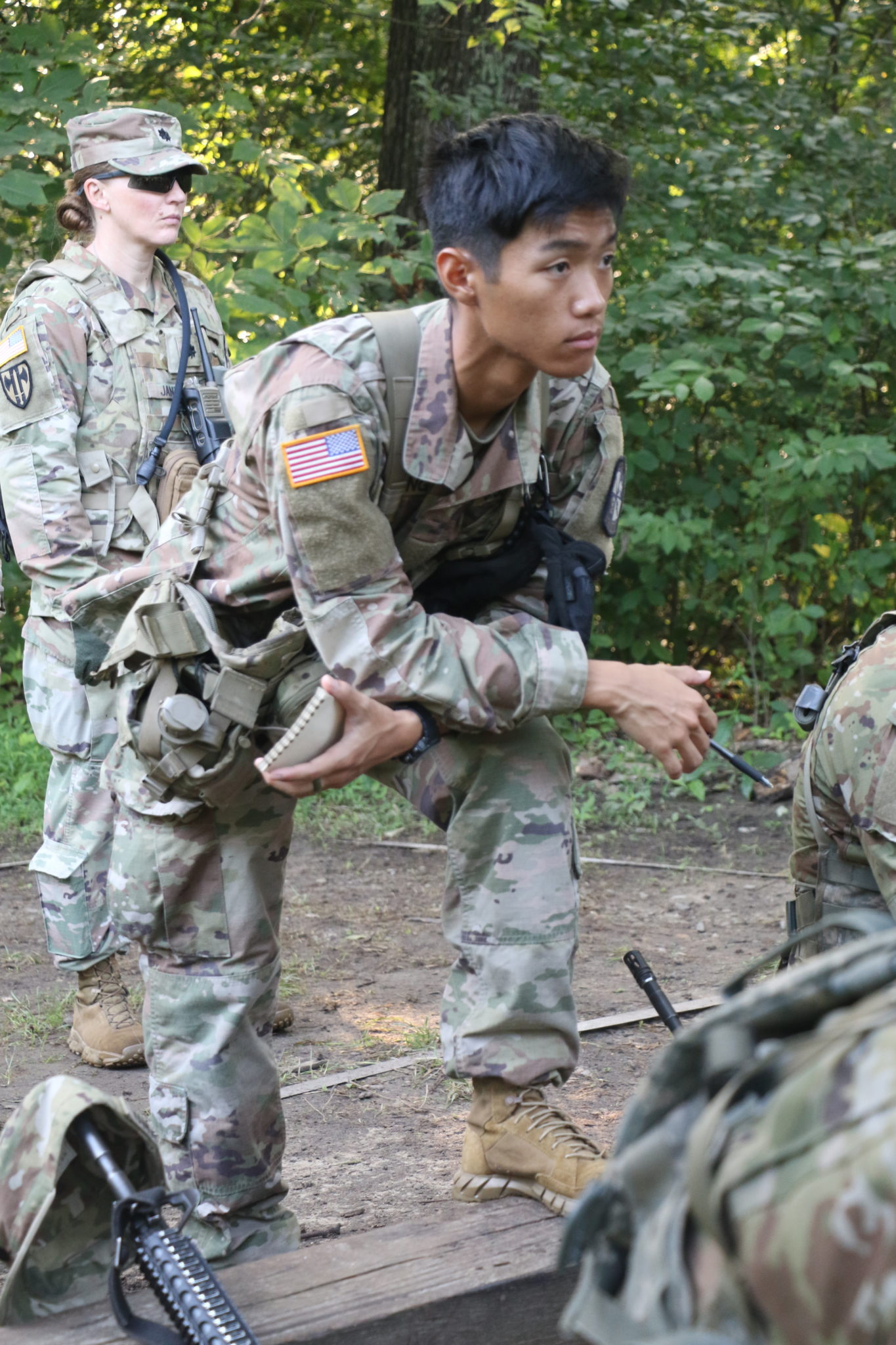FORT KNOX, Ky.– Cadets from 8th Regiment, Advanced Camp, spent the first half of the day learning the basics of first aid, radio usage, and squad formations at Fort Knox, KY., July 20, 2023.
Knowing how to communicate and assist battle buddies is crucial for the Cadets to learn before beginning a Field Training Exercise.

“We’re learning things like T-Triple C, which is Tactical Combat Casualty Care, or how to tactically care for someone who’s been wounded in combat,” said Cadet Eric Truong, University of Central Florida, “We’re also learning about radios, [Advanced System Improvement Program] radios, how to load and store information, so we’re on the right frequency and we can communicate with Allied forces.”
First aid, radio, and squad formation training allow Cadets to be prepared for emergencies.
“If you go to a FTX, and you don’t know how to care for somebody in a combat environment, it’s someone else’s life that is in your hands that could have been avoided,” Truong said. “If you don’t have proper communication, then you can’t communicate with your subordinates or you can’t communicate with people. These are essential to mission success.”
Dividing into squads enables each Cadet to practice simulated tactics and create procedure standards for smaller groups.

“This is going to help certify some [Standard Operating Procedures] that we might not have as Platoon SOPs, so it doesn’t have to be reiterated when you’re out in the field,” said Cadet Bella Kissell, University of South Carolina. “It’s definitely going to help with our movements by making them smoother throughout Wolverine and then into the next few FTX missions.”
During this training, the squads can work hands-on with the equipment they will be using in the field.
“We had a little bit of instructional classroom time, and we got into a practical exercise where we got to have hands-on time with the radios and the [mannequins],” Truong said. “We can actually practice and go through the motions instead of just talking about it. We actually get to learn how to do it live.”
By continuing to train with their squads and equipment, Cadets can become more confident in their abilities.
“I’m doing better than I expected myself to do, so I’m proud of myself,” Kissell said. “There are a lot of people in my program that I would consider high-speed, so I compare myself to these people. Then, I come out here, and I’m actually not that bad. I know a lot of stuff.”
As they prepare for their first FTX, the Cadets can now feel more cohesive with their squad, more knowledgeable on procedures, and more self-assured in their skills.
“There are times to be serious, there are times to also just have fun,” Kissell said. “Embrace the suck, have fun. don’t have a bad attitude, and just get it done.”




